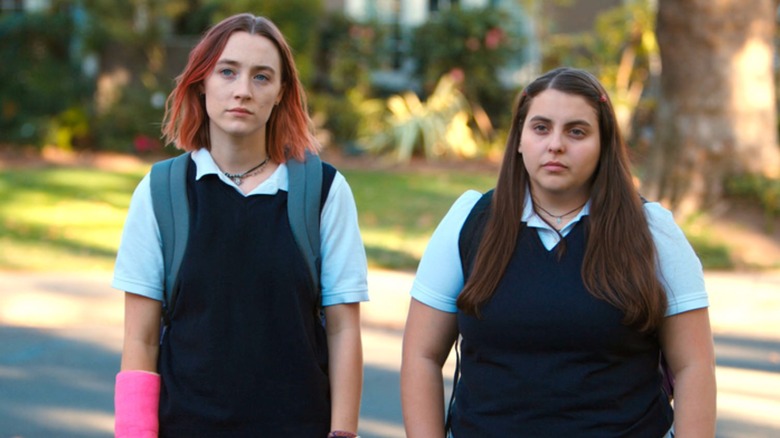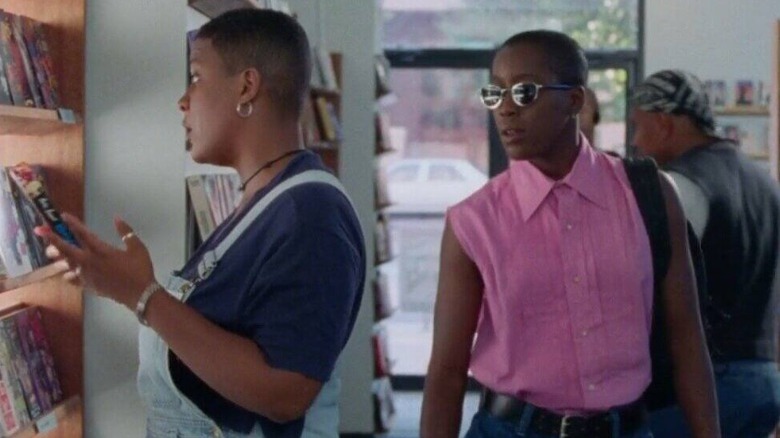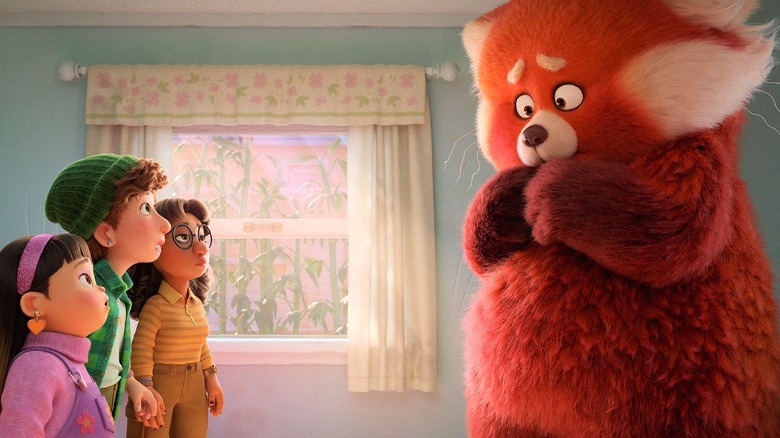You Don't Have To Relate To A Movie To Love It
The first time I remember realizing a movie wasn't made for me, I was probably 13 years old. I had just started watching the American Film Institute's list of the top 100 films of all time in earnest and I remember finishing a title and thinking that whoever chose to put this movie on this list clearly did not have someone like me in mind. My next thought was that this film must be meaningful to someone else.
My feelings about the hierarchies that inform the film canon have grown much more complicated with age, as has my confidence in my own opinion, but I still think that last sentiment rings true. Just because a movie isn't for you, that doesn't mean it's not for anyone. There's a whole spectrum of valuable storytelling that lies between "The characters in this movie don't remind me of myself" and the all-too-common leapt-to conclusion: "This is a bad movie." As critics and viewers, the second worst mistake we can ever make is believing in our own objectivity. The first is leaving our empathy at the door.
Specificity is essential
In recent years, great films telling specific stories — often from perspectives that have historically been shut out of popular discourse or the filmmaking industry as a whole — have been met time and again with responses that dismiss their value simply because viewers aren't meeting them where they live. From the era-specific emotional interiority of "Lady Bird" to the rural Korean-American dream of "Minari" to the boy band-loving girlhood of "Turning Red," vital films get dismissed like clockwork for being too specific to love.
Make no mistake, it's never the latest Schrader, Spielberg, or Scorsese that falls prey to this type of discourse. More often than not, the movies that garner unimaginative responses are helmed by filmmakers whose stories have been marginalized: women, people of color, queer, or disabled filmmakers. They're the artists whose films don't make it onto the type of canonical lists film students and film buffs alike pore over (like, ahem, the AFI Top 100), and whose great work has been conspicuously missing from baseline discussions of the "classics" for decades.
In her groundbreaking film "The Watermelon Woman," filmmaker Cheryl Dunye's character (also named Cheryl) unearths the story of a Black lesbian actress from the 1930s who never got credit for her work. When asked what the discovery means to her, Cheryl says, "It means hope. It means inspiration. It means possibility. It means history!" Every time I see someone dismiss a movie that is intentionally specific in its perspective simply because it doesn't cater to their narrow imagination, I wonder if they've ever had to search for their own hope, inspiration, possibility, or history on screen.
As always, Ebert said it best
You don't have to relate to movies to love them. In fact, most movies are not made for you, specifically, to relate to. This is why we can love movies about sad guys who dress up as bats, or women with murderous parasitic twins on the backs of their heads, or people who slingshot their cars off cliffs. Roger Ebert said it better than I ever could:
"We are all born with a certain package. We are who we are. Where we were born, who we were born as, how we were raised. We are kind of stuck inside that person, and the purpose of civilization and growth is to be able to reach out and empathize a little bit with other people, find out what makes them tick, what they care about. For me, the movies are like a machine that generates empathy."
Empathy is a muscle, something you build up through sustained use. If you've made it this far watching movies that don't require your imagination and your empathy — movies full of people who look and act like you — your empathy may well be atrophied in ways that aren't comfortable to examine. But here's the good news: movies, in all their glorious specificity and tremendous diversity, can also be the very best medicine.


